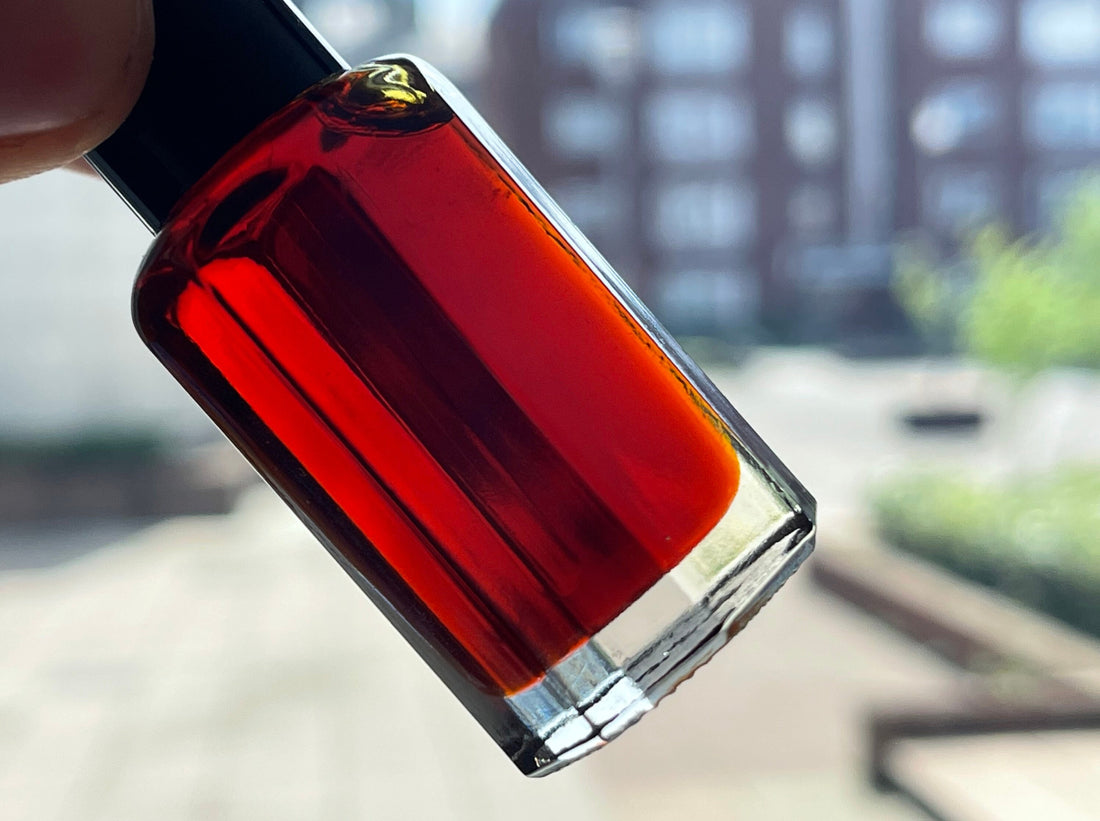As you’ve probably guessed, cultivated Oud isn’t as good as wild. Why is this? Let’s dive in.
The first thing I’ll say is that although cultivated Oud might not be as good as wild but that doesn’t mean it’s bad, nor should I discourage people to try it. I hold the philosophy that to appreciate Oud fully you should start at the bottom (well, near to it!) and work your way up slowly. This way, as your nose becomes more in tune with scent you will slowly understand what makes a great Oud great! Grading a scent is somewhat subjective and there are many connoisseur scents that, at first sniff of a newbie would probably seem unworthy of acclaim. This is why education through sampling many oils will really help your knowledge grow and in turn it will aid you in appreciating high end scent.

Bad / cheap cultivated Oud may smell weak,maybe like petrol, rancid, unwanted off notes (bad barnyard). It may well also contain alien extras like patchouli or synthetics. For these reasons it’s best to skip the ‘bottom of barrel’ cheapy cheap oil completely. Once you’ve been burned you’ll learn 😆. A side note that sneaky additions used to bulk up oil is a problem across the board.
A fair cultivated Oud will most likely smell amazing to a newcomer, although quite one dimensional. With age these oils can improve very well. Age can add complexity, depth, personality and nuance that would have been lacking in its youth. A fine example of this is Trat oud. You can have a fresh Trat side by side with an oil made by the same manufacturer, in the same way, with the same age trees but 5-7 years old and you will notice a massive difference!
Organic oud is a nice ‘half way house’. Organic oud oil is made from trees grown without synthetic pesticides or fertilizers, ensuring a more natural and sustainable product but It’s also valued for its unique and complex fragrance compared to normal cultivated and It has much more personality.

Wild oud oil of course is king. Extracted from agarwood trees that grow naturally in their native habitat, without human intervention (usually). These trees develop agarwood naturally in response to environmental factors such as fungal infections or physical damage. The scent is usually deeply nuanced with bundles of personality and complexity. The aroma you experience through wild oud just can’t be replicated from cultivated trees unfortunately. The complexity in aroma is derived from each region, the quality of material used and the skill of distillation. These oils in most cases grow really well with age. The most change will be noticeable in the first few months with further changes after 3-5 years and beyond. The quality of chips used for distillation is very important also. Cheap wild wood or shavings versus incense grade or better is very much noticeable side by side in terms of strength and difference in aroma. The price of wild oud may be high but really you only need a small dot on the wrist to be able to experience the aroma which makes sniffing very affordable!

I hope you enjoyed reading my blog, please feel free to take a look at all of our oud oil in the website shop. Oli.
